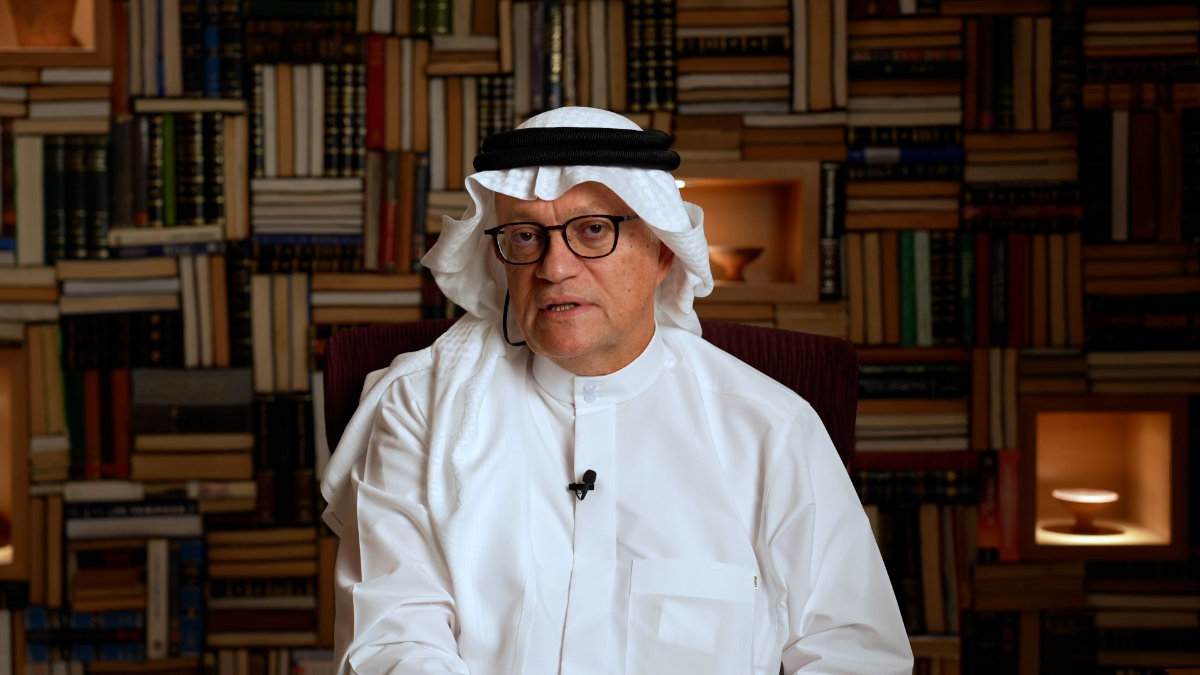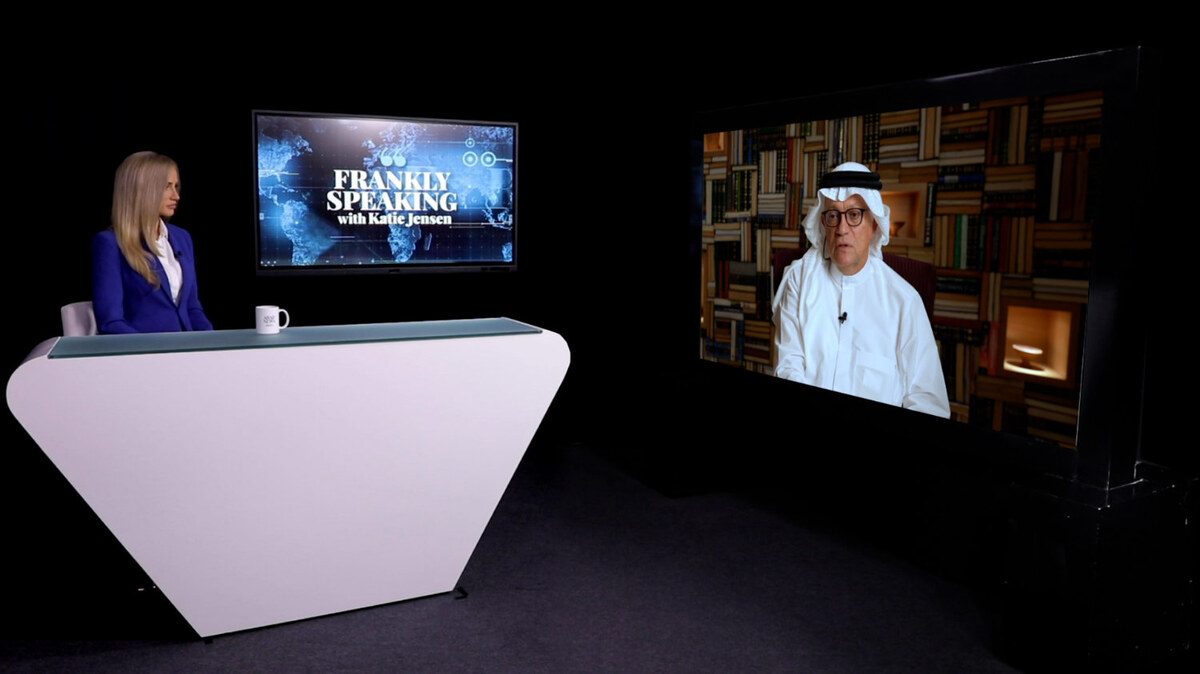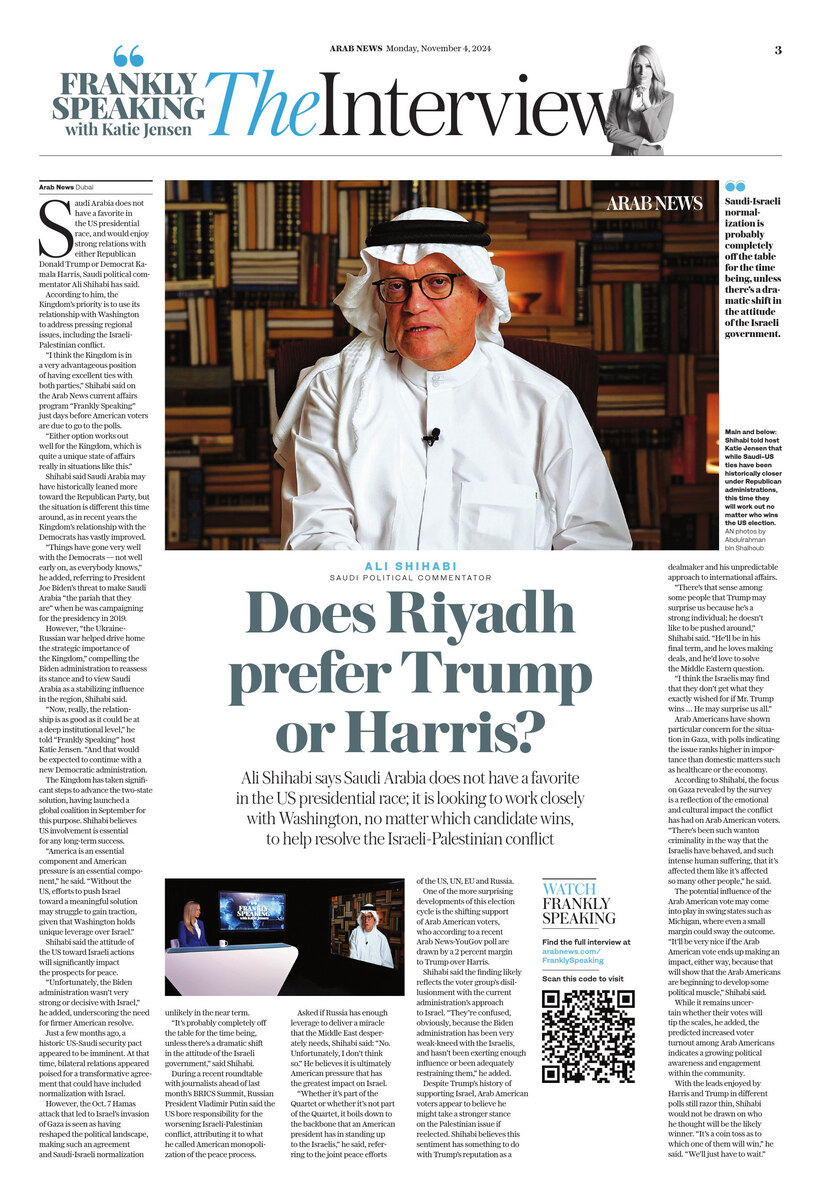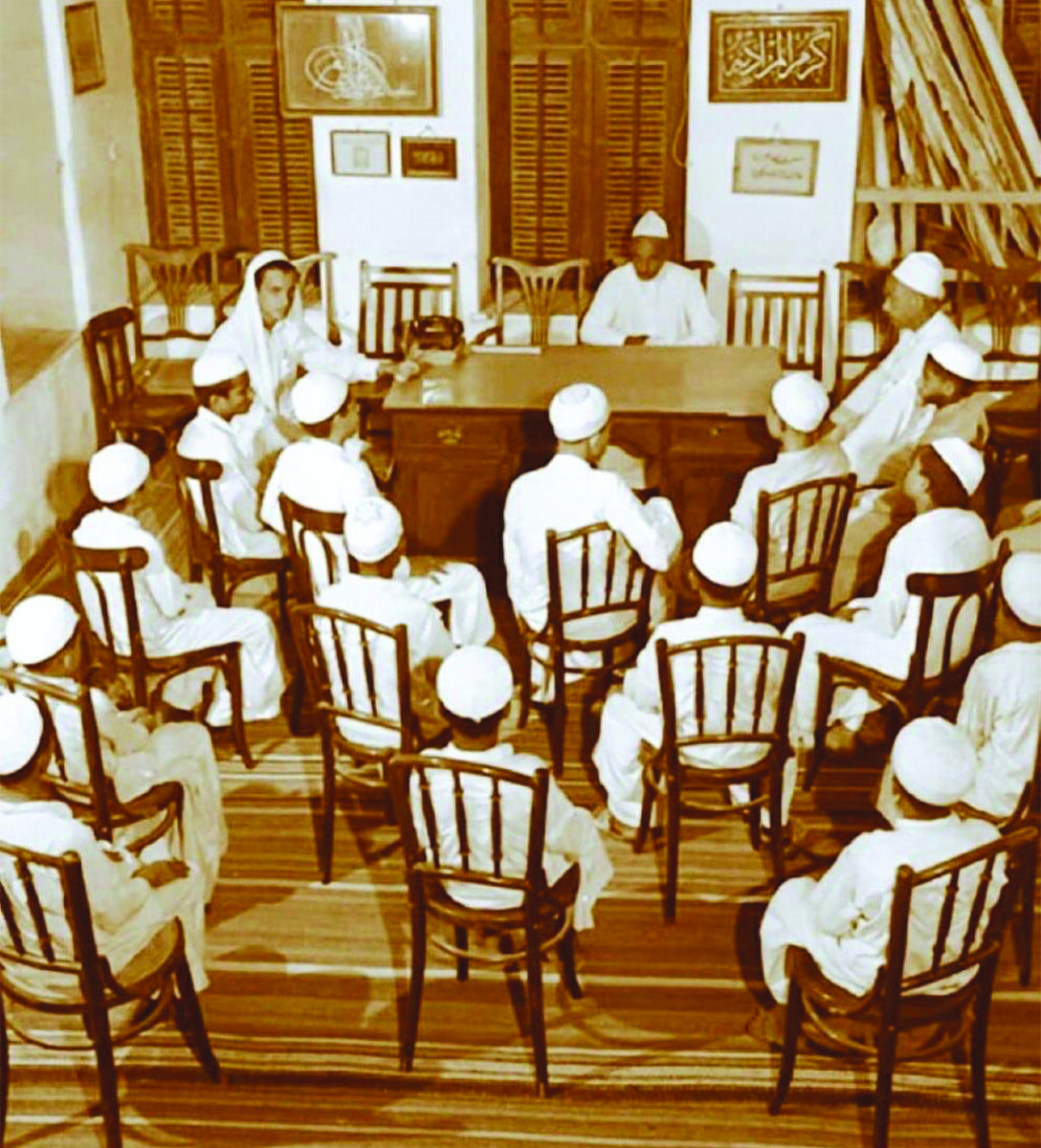DUBAI: Saudi Arabia does not have a favorite in the US presidential race, and would enjoy strong relations with either Republican Donald Trump or Democrat Kamala Harris, Saudi political commentator Ali Shihabi has said.
According to him, the Kingdom’s priority is to use its relationship with Washington to address pressing regional issues, including the Israeli-Palestinian conflict.
“I think the Kingdom is in a very advantageous position of having excellent ties with both parties,” Shihabi said on the Arab News current affairs program “Frankly Speaking” just days before American voters are due to go to the polls.
“Either option works out well for the Kingdom, which is quite a unique state of affairs really in situations like this.”

Combo image showing Democratic presidential candidate Kamala Harris (L) at a campaign rally in Reno, Nevada, on Oct.31, 2024, and former Republican presidential candidate Donald Trump (R) at a campaign rally in Allentown, Pennsylvania, on Oct. 29, 2024. (AFP)
Shihabi said Saudi Arabia may have historically leaned more toward the Republican Party, but the situation is different this time around, as in recent years the Kingdom’s relationship with the Democrats has vastly improved.
“Things have gone very well with the Democrats — not well early on, as everybody knows,” he added, referring to President Joe Biden’s threat to make Saudi Arabia “the pariah that they are” when he was campaigning for the presidency in 2019.
However, “the Ukraine-Russian war helped drive home the strategic importance of the Kingdom,” compelling the Biden administration to reassess its stance and to view Saudi Arabia as a stabilizing influence in the region, Shihabi said.
“Now, really, the relationship is as good as it could be at a deep institutional level,” he told “Frankly Speaking” host Katie Jensen. “And that would be expected to continue with a new Democratic administration.
“A new Democratic administration would be expected to carry on and adopt a lot of, if not all, the work that the previous Biden-Harris administration carried out. “At the same time, there’s a very warm relationship with Mr. Trump and the people around him. So it really works out well for the Kingdom either way. And that’s not a usual situation.
“Usually there has been a preference for Republicans, and ties have been closer under Republican administrations. But I think in this case it works out well, whoever wins.”

Ali Shihabi is an author and commentator on the politics and economics of Saudi Arabia. (AN photo by Abdulrahman bin Shalhoub)
Shihabi said recognition of the Kingdom’s strategic importance in the Middle East has established it as a key partner for Washington, regardless of which party is in power.
Likewise, Saudi Arabia is looking to the US, no matter which candidate wins, to help resolve the Israeli-Palestinian conflict.
The Kingdom has taken significant steps to advance the two-state solution, having launched a global coalition in September for this purpose. Shihabi believes US involvement is essential for any long-term success.
“America is an essential component and American pressure is an essential component,” he said. “Without the US, efforts to push Israel toward a meaningful solution may struggle to gain traction, given that Washington holds unique leverage over Israel.”
Shihabi said the attitude of the US toward Israeli actions will significantly impact the prospects for peace. “Unfortunately, the Biden administration wasn’t very strong or decisive with Israel,” he added, underscoring the need for firmer American resolve.
Just a few months ago, a historic US-Saudi security pact appeared to be imminent. At that time, bilateral relations appeared poised for a transformative agreement that could have included normalization with Israel.
However, the Oct. 7 Hamas attack that led to Israel’s invasion of Gaza is seen as having reshaped the political landscape, making such an agreement and Saudi-Israeli normalization unlikely in the near term. “It’s probably completely off the table for the time being, unless there’s a dramatic shift in the attitude of the Israeli government,” said Shihabi.
While a formal pact may be postponed, Shihabi believes the talks have already yielded closer security ties between the US and Saudi Arabia. “I think the discussions with America on that file have brought the Kingdom and America very close in sort of a de-facto security arrangement that isn’t a de-jure one yet,” he said.
Shihabi, who is an author and commentator on the politics and economics of Saudi Arabia, believes the next US administration — whether led by Trump or Harris — is likely to revisit the normalization talks. Indeed, both candidates have shown interest in brokering peace deals, and Saudi Arabia’s strategic importance in the Middle East ensures that these discussions will remain relevant.
However, Shihabi said much will depend on the next US administration’s willingness to press Israel toward meaningful concessions for the Palestinians. “The Israelis may be miscalculating if they think that Mr. Trump will be completely in their hands,” he said, hinting that the former president’s potential unpredictability could lead to renewed pressure on Israel if he returns to office.
“At the same time, the Harris administration will be inheriting a tremendous amount of work that the Harris-Biden administration carried out. So I think both parties will continue to pursue this file.”
During a recent roundtable with journalists ahead of last month’s BRICS Summit, Russian President Vladimir Putin said the US bore responsibility for the worsening Israeli-Palestinian conflict, attributing it to what he called American monopolization of the peace process.
Asked if Russia has enough leverage to deliver a miracle that the Middle East desperately needs, Shihabi said: “No. Unfortunately, I don’t think so.” He believes it is ultimately American pressure that has the greatest impact on Israel.
“Whether it’s part of the Quartet or whether it’s not part of the Quartet, it boils down to the backbone that an American president has in standing up to the Israelis,” he said, referring to the joint peace efforts of the US, UN, EU and Russia.
Shihabi cited past examples where US presidents exerted influence over Israel, such as when President Dwight D. Eisenhower forced Israel to withdraw from Egypt’s Sinai Peninsula in 1956, and when George H. W. Bush offered conditional loans in the 1990s.
While these instances are rare, Shihabi said, they demonstrate that US influence can shift Israeli policy when applied decisively. He remains skeptical that the current Israeli government, with its hardline stance, will make concessions without firm American intervention.
This challenge places considerable responsibility on Washington, as “the only party that has real muscle with Israel is America,” he said. “The problem is, sometimes it’s Israel that has muscle in America and not the other way around.
“The Israelis are very strong in America. They have a very strong lobbying operation. They exert enormous influence through a variety of means.
“It’s very rare that you get an American administration that takes out the stick to put the Israelis back into line. It may happen. I wouldn’t give it a huge amount of hope, but it’s not impossible.”
One of the more surprising developments of this election cycle is the shifting support of Arab-American voters, who according to a recent Arab News-YouGov poll are drawn by a 2 percent margin to Trump over Harris.
Shihabi said the finding likely reflects the voter group’s disillusionment with the current administration’s approach to Israel. “They’re confused, obviously, because the Biden administration has been very weak-kneed with the Israelis, and hasn’t been exerting enough influence or been adequately restraining them,” he added.
Despite Trump’s history of supporting Israel, Arab-American voters appear to believe he might take a stronger stance on the Palestinian issue if reelected. Shihabi believes this sentiment has something to do with Trump’s reputation as a dealmaker and his unpredictable approach to international affairs.

Ali Shihabi, an author and commentator on the politics and economics of Saudi Arabia, speaks with Frankly Speaking host Katie Jensen. (AN photo by Abdulrahman bin Shalhoub)
“There’s that sense among some people that Trump may surprise us because he’s a strong individual; he doesn’t like to be pushed around,” Shihabi said. “He’ll be in his final term, and he loves making deals, and he’d love to solve the Middle Eastern question.
“I think the Israelis may find that they don’t get what they exactly wished for if Mr. Trump wins … He may surprise us all.”
Arab Americans have shown particular concern for the situation in Gaza, with polls indicating the issue ranks higher in importance than domestic matters such as healthcare or the economy.
According to Shihabi, the focus on Gaza revealed by the survey is a reflection of the emotional and cultural impact the conflict has had on Arab-American voters. “There’s been such wanton criminality in the way that the Israelis have behaved, and such intense human suffering, that it’s affected them like it’s affected so many other people,” he said.
The potential influence of the Arab-American vote may come into play in swing states such as Michigan, where even a small margin could sway the outcome. “It’ll be very nice if the Arab-American vote ends up making an impact, either way, because that will show that the Arab Americans are beginning to develop some political muscle,” Shihabi said.
While it remains uncertain whether their votes will tip the scales, he added, the predicted increased voter turnout among Arab Americans indicates a growing political awareness and engagement within the community.
With the leads enjoyed by Harris and Trump in different polls still razor thin, Shihabi would not be drawn on who he thought will be the likely winner. “It’s a coin toss as to which one of them will win,” he said. “We’ll just have to wait.”

































